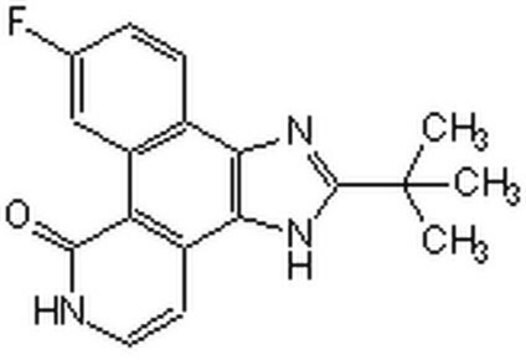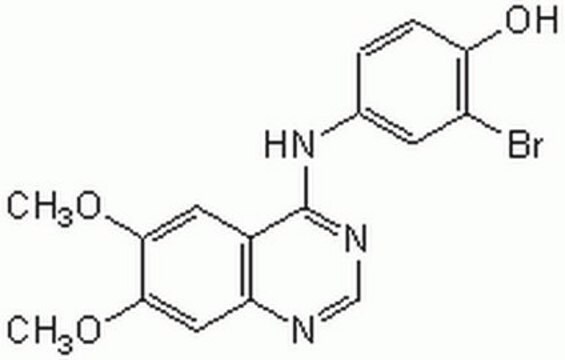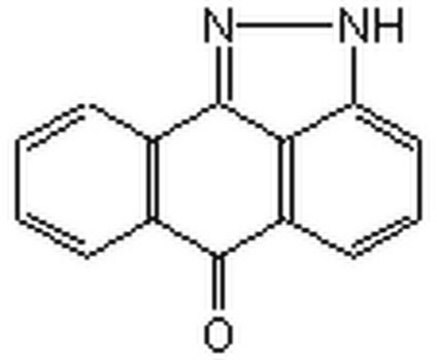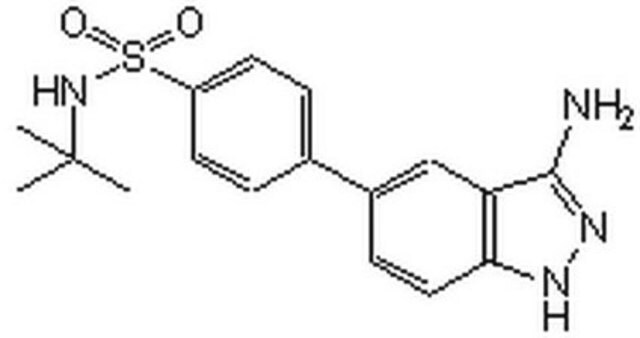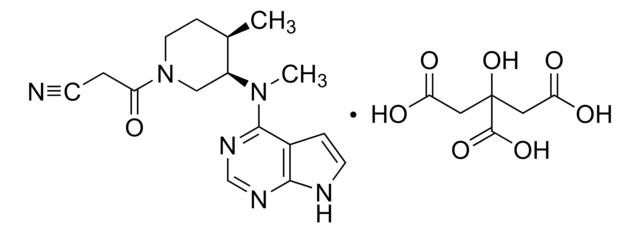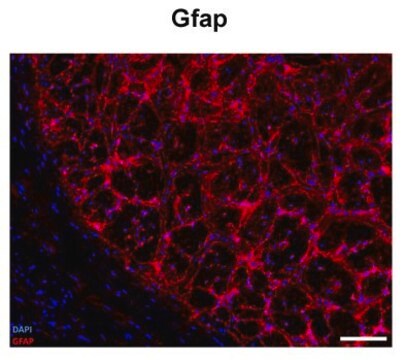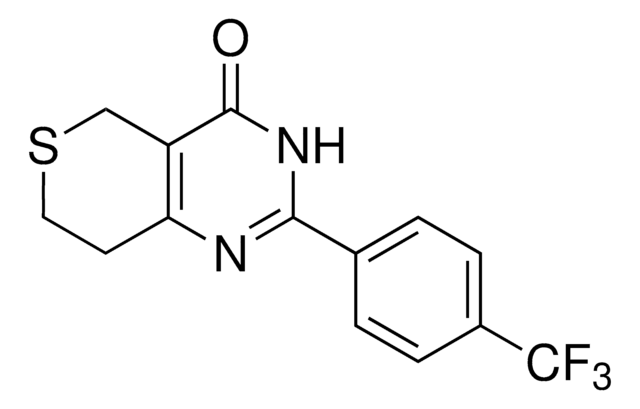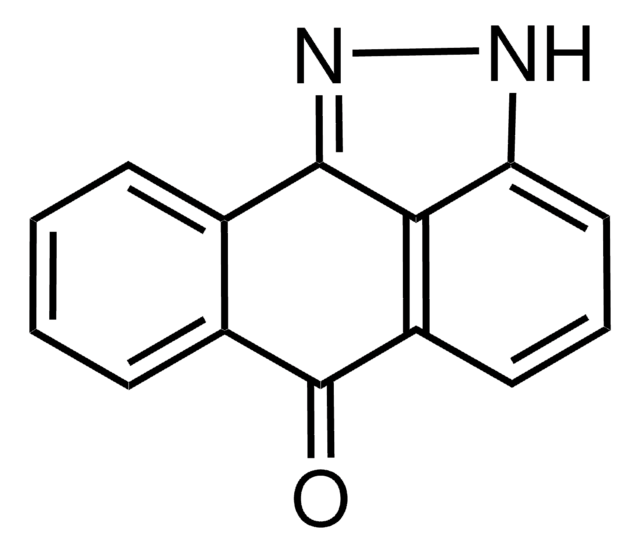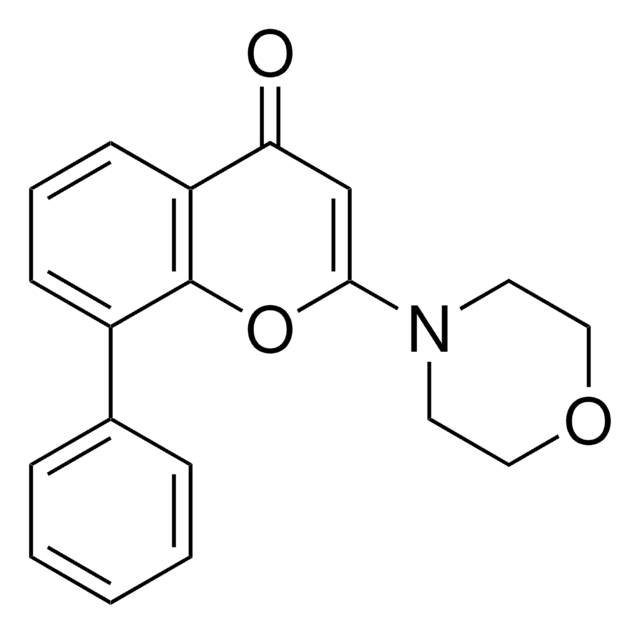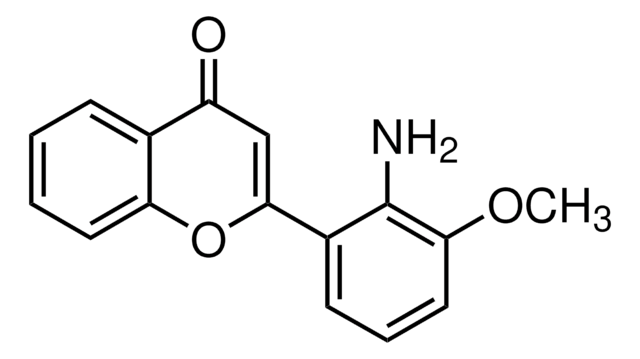420099
JAK Inhibitor I
≥98% (HPLC), solid, JAK inhibitor, Calbiochem®
Synonym(s):
JAK Inhibitor I, 2-(1,1-Dimethylethyl)-9-fluoro-3,6-dihydro-7H-benz[h]-imidaz[4,5-f]isoquinolin-7-one, Pyridone 6, P6, DBI, JAK1 Inhibitor I, JAK2 Inhibitor I, JAK3 Inhibitor X
About This Item
Recommended Products
Product Name
JAK Inhibitor I, JAK Inhibitor I, CAS 457081-03-7, is a potent, reversible, cell-permeable, and ATP-competitive inhibitor of JAK 1 (IC₅₀ = 15 nM), JAK2 (IC₅₀ = 1 nM), JAK3 (Ki = 5 nM) and Tyk2 (IC₅₀ = 1 nM).
Quality Level
Assay
≥98% (HPLC)
form
solid
manufacturer/tradename
Calbiochem®
storage condition
OK to freeze
protect from light
color
off-white
solubility
DMSO: 5 mg/mL
shipped in
ambient
storage temp.
−20°C
SMILES string
Fc1cc2c(c3[nH]c(nc3c4c2c(ncc4)O)C(C)(C)C)cc1
InChI
1S/C18H16FN3O/c1-18(2,3)17-21-14-10-5-4-9(19)8-12(10)13-11(15(14)22-17)6-7-20-16(13)23/h4-8H,1-3H3,(H,20,23)(H,21,22)
InChI key
VNDWQCSOSCCWIP-UHFFFAOYSA-N
General description
Biochem/physiol Actions
murine JAK1
Packaging
Warning
Reconstitution
Other Notes
Lucet, I.S., et al. 2005. Blood107, 176.
Thompson, J.E., et al. 2002. Bioorg. Med. Chem. Lett.12, 1219.
Legal Information
Storage Class Code
11 - Combustible Solids
WGK
WGK 3
Flash Point(F)
Not applicable
Flash Point(C)
Not applicable
Regulatory Listings
Regulatory Listings are mainly provided for chemical products. Only limited information can be provided here for non-chemical products. No entry means none of the components are listed. It is the user’s obligation to ensure the safe and legal use of the product.
JAN Code
420099-12MG:
420099-30MG:
420099-2MG:
420099-500UG:
420099-10MG:
420099-1MG:
Certificates of Analysis (COA)
Search for Certificates of Analysis (COA) by entering the products Lot/Batch Number. Lot and Batch Numbers can be found on a product’s label following the words ‘Lot’ or ‘Batch’.
Already Own This Product?
Find documentation for the products that you have recently purchased in the Document Library.
Customers Also Viewed
Our team of scientists has experience in all areas of research including Life Science, Material Science, Chemical Synthesis, Chromatography, Analytical and many others.
Contact Technical Service